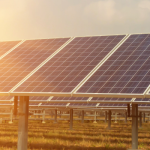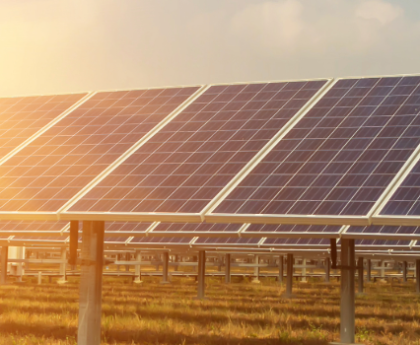Tens of thousands of dollars down the drain and stuck with equipment that doesn’t work. Investing in solar power can save you big bucks on your energy bill, but businesses outside of your area can get stretched too thin, while con artists and unlicensed sales reps can leave customers high and dry.
WINK Investigations reporter Peter Fleischer spoke with one family who had to press “reset” on their solar situation.
For a long time, Ed Schifman was happy with the way his solar panel system almost eliminated his energy costs. He was early to invest in the new form of energy and went with a big, reputable company, but after paying 20 to 30 bucks a month for years, his power bills started to skyrocket.
“It went up to $200, then it was $300, $400,” Schifman remembers. “Obviously, there was a problem.”
He went to the company that installed his system. It is based out of the Tampa area, meaning they were hours away from being able to service Schifman in person. As the company started to diagnose the issue, there were calls and then visits.
“It was always a different thing,” Schifman recounts, as the company struggled to identify what was causing his system problems.
Nothing worked, and the company seemed to slowly pull back.
“I was getting more and more anxious. I was getting more concerned,” Schifman explains. “I was keeping tabs on my daily usage. Eventually, they stopped communicating at all.”
“That happens a lot,” admitted Brian Reznor, Director of Operations at Advanced Solar, a family-owned southwest Florida-based company.
Advanced Solar has been in business for over 40 years, and they’ve seen everything in the market. They’ve seen all the benefits when solar technology is working the way it’s supposed to, and they’ve seen all the headaches and issues that can come when the tech is malfunctioning or improperly installed.
“(We’ve seen) systems where no permits were pulled. System was never even activated. And they’ve already been paid by the finance company,” Reznor says.
With the company that installed his equipment not responding to any of his calls, emails or messages, Schifman was forced to pivot. That’s where Advanced Solar came in. The company took over Schifman’s project and said they discovered faulty and improperly installed equipment.
“I mean, it made me feel better,” Schifman admits. “But it didn’t help my pocketbook very much.”
Solar tech is becoming more popular, and many families have gotten some kind of offer. Salesmen will call or email unsolicited. Sometimes, they’ll even show up at your front door, ready with pamphlets or information that customers haven’t asked for.
“We will not knock on your door unless you invited us over,” Reznor claims. “If you didn’t invite them over and they’re knocking on your door, they might not be coming with the right idea in mind for you.”
These cold-call salesmen often have a system that seems too good to be true. Sometimes, they take the money and run before their clients know what happened.
“By the time of your first service call, they’re no longer in business. They’re in some other state doing the exact same thing,” Reznor said, detailing the pattern of behavior they’ve seen in the past.
Other times, the solar gear gets installed but doesn’t work or damages the roof it sits on.
“I have a forty thousand dollar system on my roof and it’s not doing anything,” Reznor remembers countless phone calls with customers. “Some of the others are horrible damage! Roofs leaking, roofs destroyed.”
Experts call those people with bad deals “solar bandits.” They’re out there, but there are also ways to spot red flags if you know what questions to ask.
“How long have you been in business? What licenses do you hold? How many people are on your team? How many experts are you working with?”
Schifman’s system is now back and running like it should. In fact, he’s looking to increase the amount of solar he uses in the future. But only with a cautious, informed approach.
“The technology is there. And there are people, qualified people, who can do a great job for you,” Schifman says with just one qualification. “But you need to go look for them.”
Solar contractors in Florida are required to have certification through the Florida Solar Energy Industries Association.
You can access that database here: https://members.flaseia.org/directory
This post was originally published on 3rd party site mentioned in the title of this site





